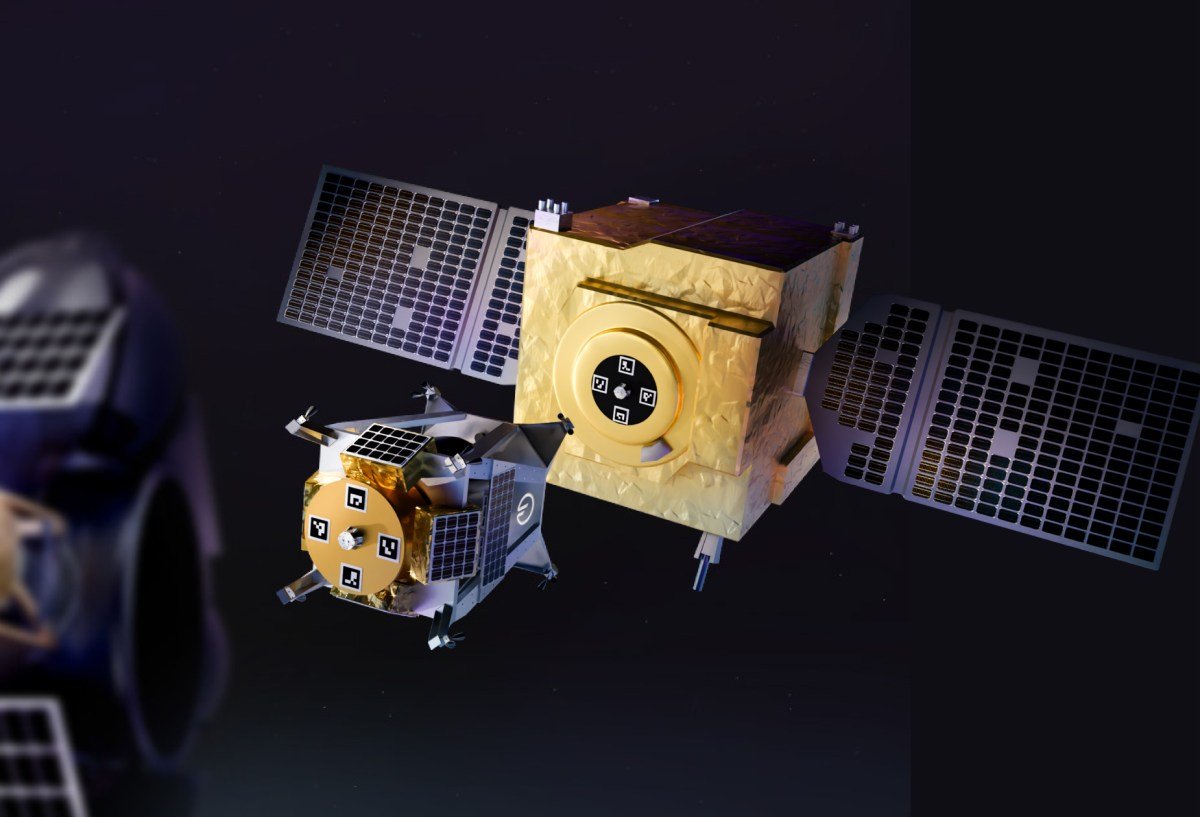Orbit Fab, a Colorado-based startup founded in 2018, is revolutionizing the space industry with its innovative concept of building “gas stations” for satellites. Their latest product, the RAFTI docking mechanism, is now flight qualified and available on the market for just $30,000 per port.
The company is led by CEO and co-founder Daniel Faber, who has been working in the space industry for decades and is most well-known for his work with Deep Space Industries (DSI), a pioneer in asteroid mining. DSI, founded in 2012, was acquired by Bradford Space in 2019.
When asked about the early beginnings of Orbit Fab, Faber joked, “If you want to talk about something that’s too early, that’s it.” In the exploration of developing technology for prospecting distant asteroids, DSI created satellite thrusters for orbital maneuvering. Through conversations with customers and industry colleagues, Faber recognized the potential in-space refueling held as the next big opportunity.
One key driving factor for this idea is the value of propellant. Faber shares, “Spacecraft are optimized with the amount of fuel they have, and an extra kilo could provide up to a million dollars in marginal revenue for satellite missions.” With this potential value, Faber believes it’s essential to tap into this opportunity and make it a reality.
The rise of satellite servicing companies, such as Astroscale, has further solidified Faber’s vision. These companies are developing technology for tasks like space debris removal, satellite life extension, and last-mile satellite delivery. Faber compares their capabilities to “tow truck applications” and recognizes a need for orbital gas stations to complement this fleet.
Hence, Orbit Fab was born. In just its first year of operation, the startup raised a $6 million seed round with funding from Bolt and Munich Re Ventures, the VC arm of Munich Re Group, one of the leading underwriters of satellites and rockets. In 2023, the company secured a $28.5 million Series A round.
The company’s ambitious technology is supported by a relatively simple architecture. The idea is to equip customer satellites with the refueling port (aptly named RAFTI) while the hardware is still on Earth. This port, or “gas cap” as Faber refers to it, can also be utilized to fuel spacecraft on the ground before launch. Once in space, when a RAFTI-equipped satellite runs out of propellant, one of Orbit Fab’s tankers can pick up fuel from orbital depots and deliver it directly to the customer’s satellite for refueling.
Orbit Fab’s primary products are fuel and refueling ports, with the bulk of their revenue expected to come from fuel sales. On their website, they advertise a hydrazine delivery service in geostationary orbit at a cost of $20 million for up to 100 kilograms.
Given the simplicity of the architecture, perfection in each component is crucial. This is why it took Orbit Fab years to debut the refueling port. Various factors had to be considered, such as cost to the customer versus potential revenue, impact on the customer spacecraft, and developing a docking mechanism that could also transfer propellant.
Furthermore, the company had to ensure their components complied with high standards set by NASA, the Space Force, and the American Institute of Aeronautics and Astronautics. This thorough and meticulous process was necessary to ensure safety, reliability, and the ability to withstand the harsh environment of space.
Faber acknowledges a significant shift in the company’s focus since its inception due to the establishment of the U.S. Space Force and its impact on the space industry. Orbit Fab has pivoted to address the emerging needs of the Space Force, which is interested in orbital mobility for avoiding space debris or rendezvous with other satellites.
The company is planning to launch the first RAFTIs on customer satellites later this year, followed by the first fuel shuttle in 2023 as part of a contract with the DOD. Their goal is to deliver fuel in geostationary orbit by 2025. Additionally, Orbit Fab aims to sell 100 fueling ports this year, which would equip a “decent percentage” of satellites headed to orbit, according to Faber. They also have a deal with an undisclosed commercial customer to deliver a significant amount of fuel in the coming years.
Faber hinted at future plans to upgrade the RAFTI and design variants capable of handling higher-pressure propellants. The team is also considering redesigning the grapple housing to accommodate larger spacecraft, based on market demand.
“SpaceX has made rockets reusable, and Orbit Fab’s mission is to make satellites reusable,” Faber stated. “In today’s world, if you’re running a rocket company and not working towards reusable rockets, you’re headed for a dead end. The same goes for satellites – if you’re not making them reusable, you’re only contributing to the growing problem of orbital debris.”








